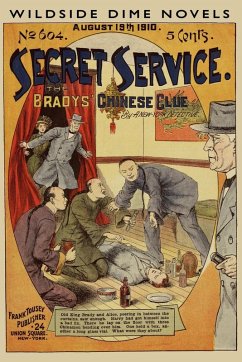
Gerry Sant of the Secret Service
Versandkostenfrei!
Versandfertig in 1-2 Wochen
16,99 €
inkl. MwSt.

PAYBACK Punkte
8 °P sammeln!
From the Introduction: To those who, like myself, have moved in the Continental underworld of spies and spying, the name of "Sant of the Secret Service" is synonymous with all that is ingenious, resourceful, and daring. In the Intelligence Departments of London, Paris, Rome, and New York, the name of "Sant of the Secret Service" is to-day one to conjure with. Cheerful, optimistic, and the most modest of men, Gerry Sant has seldom spoken of his own adventures. The son of a certain nobleman who must here remain nameless, and hence the scion of a noble house, he has graduated through all stages o...
From the Introduction: To those who, like myself, have moved in the Continental underworld of spies and spying, the name of "Sant of the Secret Service" is synonymous with all that is ingenious, resourceful, and daring. In the Intelligence Departments of London, Paris, Rome, and New York, the name of "Sant of the Secret Service" is to-day one to conjure with. Cheerful, optimistic, and the most modest of men, Gerry Sant has seldom spoken of his own adventures. The son of a certain nobleman who must here remain nameless, and hence the scion of a noble house, he has graduated through all stages of the dark and devious ways of espionage. Our first meeting was ten years ago, in the tribune at the Battle of Flowers at San Remo, where, to be exact, we were fellow-members of the committee, and it is because of our old friendship, and the fact that we have been fellow-spies up and down Europe, that he has permitted me to write down these intensely absorbing memoirs of exciting and unrecorded adventures in defeating the Hun.












